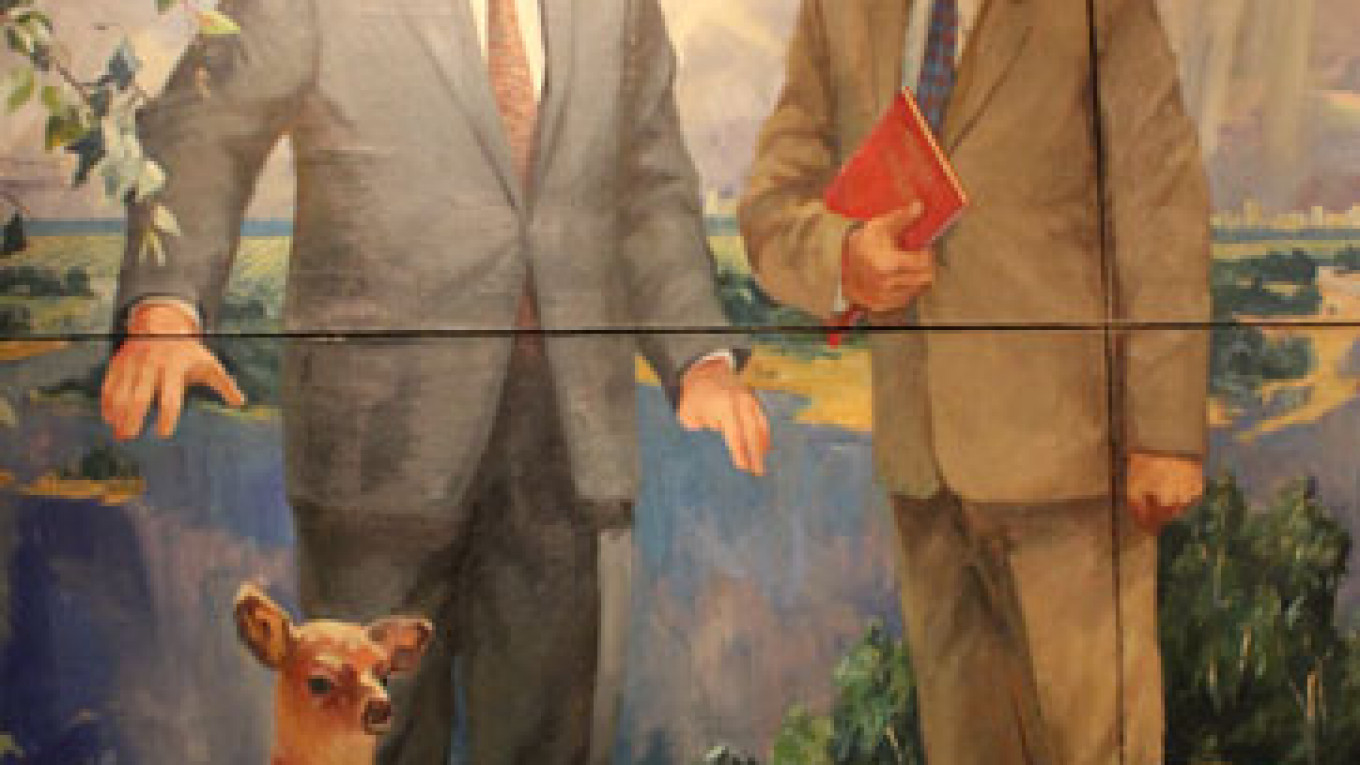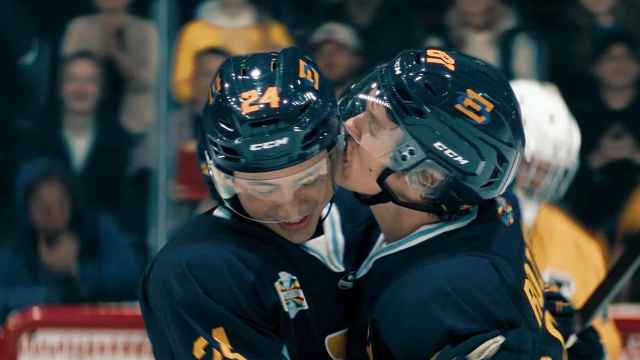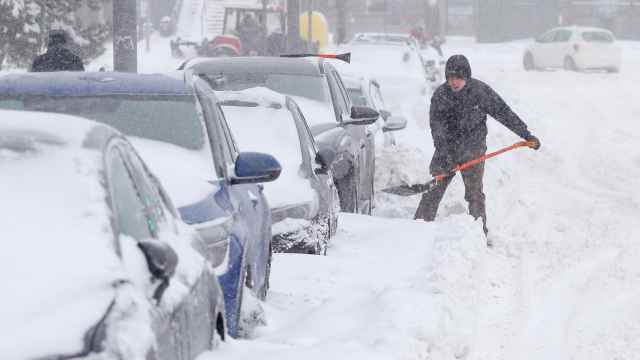The 1990s are often thought of in the West as a decade with relatively few problems. One-hit wonder bands sang sincerely while hip, neoliberal politicians managed booming economies. The 90s in Russia, however, was a more turbulent time and art from the period shows it.
The second half of the "Reconstruction" exhibition, put on as a joint project between the Yekaterina Cultural Foundation and the Garage Center for Contemporary Culture, explores the second half of a decade known for wars in Chechnya and wild capitalism.
The show, which covers the time from late 1995 through the year 2000, picks up where the first part of the exhibition left off and attempts to "collect the remaining artifacts," of pieces that tell the tale of Russia's artistic life. The result of the excavation — though many of the pieces probably only needed a slight dusting off — is a look back at the themes and problems of the end of the last millennium, presented through the eyes of the contemporary art scene.
Divided up into sections based on 12 prominent galleries during that time, the introduction to the exhibition proclaims proudly that the lack of well-heeled collectors at the time turned the various spaces into playgrounds for experimentation rather than price tag-driven commercialism. The works on the exhibition’s three floors live up to the idea of being experimental, ranging from edgy social commentary to the bizarre, such as two greenhouses built to look like a bull and cow copulating.
The exhibit stays true to its promise to delve into the original material of the decade even down to the information on the plaques accompanying different pieces. Interspersed between the different paintings and sculptures are films from places like the Marat Guelman Gallery and other galleries that have since fell by the wayside which show aged footage of the original openings. Instead of the curators' thoughts on each work, audiences can read the reviews of artists like eventual Kandinsky Prize winner Vadim Zakharov from the late '90s, back when prominent critics such as Milena Orlova were young reporters working for Kommersant.
While at times the exhibition seems focused on a group of artists simply reminiscing about their own isolated part of society, the insights that many of the works give to the decade's issues are a reason for attending.
Subjects like President Vladimir Putin may seem like artistic fixations now, but politics had a large influence on creativity in the '90s as well. Works by Alexander Vingradov and Vladimir Dubosarsky show then-President Boris Yeltsin and politician Alexander Lebed walking underneath rainbows while wolves threaten nearby or Russian soldiers dying gruesome deaths in fields of brightly colored flowers. Though no longer exactly contemporary, the collection of "artifacts" from the late '90s and the perspective they provide still feels fresh today.
Contact the author at [email protected]
A Message from The Moscow Times:
Dear readers,
We are facing unprecedented challenges. Russia's Prosecutor General's Office has designated The Moscow Times as an "undesirable" organization, criminalizing our work and putting our staff at risk of prosecution. This follows our earlier unjust labeling as a "foreign agent."
These actions are direct attempts to silence independent journalism in Russia. The authorities claim our work "discredits the decisions of the Russian leadership." We see things differently: we strive to provide accurate, unbiased reporting on Russia.
We, the journalists of The Moscow Times, refuse to be silenced. But to continue our work, we need your help.
Your support, no matter how small, makes a world of difference. If you can, please support us monthly starting from just $2. It's quick to set up, and every contribution makes a significant impact.
By supporting The Moscow Times, you're defending open, independent journalism in the face of repression. Thank you for standing with us.
Remind me later.






